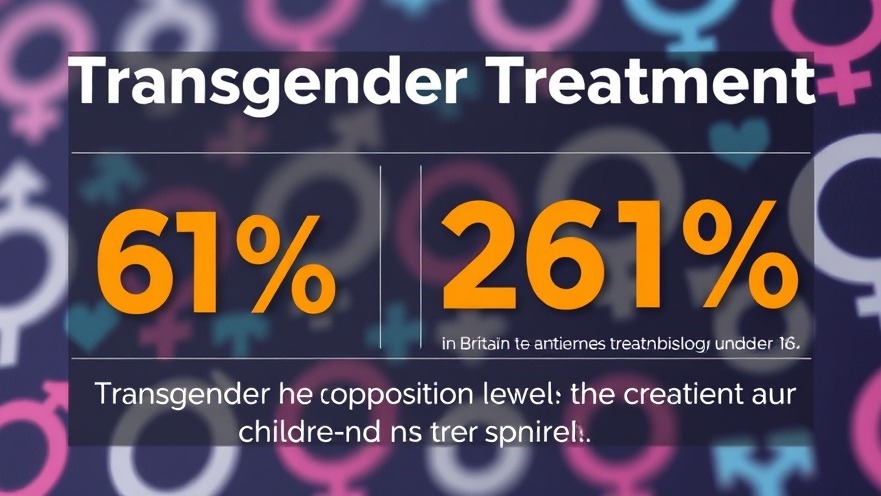
Understanding the Shift in Support for Trans Rights
In recent years, a significant shift in public opinion regarding transgender rights has been witnessed in Great Britain, as highlighted by a new Yugo survey. This report, which surveyed over 2,000 adults, shows a clear move towards skepticism about various aspects of transgender rights, including legal sex changes and social transitions. For many, these changes have become a matter of concern, particularly among those who hold Christian values.
In 'Support for ‘trans rights’ dropping', the discussion dives into the latest survey findings regarding transgender rights in Great Britain, exploring key insights that sparked deeper analysis on our end.
The Survey Findings Speak Volumes
The findings of the survey indicate that support for transgender individuals using single-sex facilities is dwindling, with a striking 51% voicing concerns over safety. Many believe that allowing biological males in women's spaces could pose serious risks. Furthermore, 74% of respondents oppose biological men from participating in women's sports, reflecting a deep-seated understanding of fairness in competitive settings.
Concerns Over Youth Medical Treatment
Among the most pressing topics are medical treatments for minors. Here, 75% of survey respondents reject the use of puberty blockers for those under 16, and 78% express opposition to cross-sex hormone treatments. This indicates an overarching concern for the well-being of younger individuals and a desire to protect them from making potentially irreversible decisions at an early age.
Christian Values in the Dialogue
For many who uphold Christian values, the data resonates deeply as it aligns with the belief that gender is a divinely established binary. These perspectives often shape not only personal beliefs but also how communities engage in discussions about rights, safety, and morality. The intersection of faith and politics is critical here, as religious teachings encourage respect for one another while simultaneously advocating for distinct views on human identity.
A Time for Reflection and Action
As society grapples with these complex issues, it’s essential that we reflect on how best to engage in discussions that uphold both compassion and truth. For individuals and families, especially those from the Christian community, understanding these survey findings can facilitate meaningful conversations. Balancing empathy towards transgender individuals while also voicing legitimate concerns about safety and rights is vital for healthy dialogue.
In a world increasingly polarized on topics like these, having informed perspectives can foster deeper understanding within communities. It is crucial to approach these discussions with both grace and a firm stance on values grounded in faith.
Ultimately, engaging with friends and family on these important issues can encourage a respectful exchange of ideas, enriching our community understanding.
 Add Row
Add Row  Add
Add 








Write A Comment